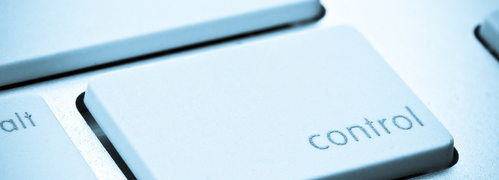
From Dr. Henry Cloud
Over the years, Dr. Henry Cloud has been a trusted voice in the church with balanced view of God's Word and science of how people think and act. I have spent one-on-one time with him, time with him in small groups, and in large settings. In every setting, I found him to be brilliant, helpful, and humble. Recently, I was forwarded an email from Dr. Cloud (see below). It reminded me of his wisdom and practical insights to help people deal with life in God-honoring ways. Enjoy his content and do the hard work of dealing with stress and anxiety.
One of the most significant drivers of negative thinking is when an individual develops a sense that they have lost control over things that are, in fact, still in their control. When someone with this vulnerability is put in a position where things that they cannot control, such as the economy, are affecting them, they shut down and do not execute in the activities that they can control. This is where it all begins to go downhill.
So one of the interventions that I have found helpful is to have people and teams get at the root of the problem: feeling out of control. I give them this assignment:
The results are often powerful because this exercise gets to the root of the problem in the mental map: control. When the map says that nothing you do matters, then you stop focusing on the things that you do have control over, things that actually do matter and that can make a difference. But when you regain control of yourself, strong results can be obtained, even in crummy environments.
Our brains drive our behavior, and it is very possible for our brain hardware and software, the mental maps, to keep us stuck. The good news is that it can be changed with a little focus and a little work.
So one of the interventions that I have found helpful is to have people and teams get at the root of the problem: feeling out of control. I give them this assignment:
- Take a piece of paper and divide it into two columns.
- In column one, write down all the things you cannot control that are affecting you. For example, a bad economy, the weather, other people and their issues, and so on. Now, worry about all of that. Hard! For about ten minutes. Then stop for the day. You can worry about it again tomorrow. It won't have changed much.
- In column two, write down all of the things you do have control over. For example, who you reach out to on the phone or online, being a good friend, doing well at the tasks that you have to work on, getting exercise that you are able to do, eating well, prayer.
- Now get with someone else, a friend, a spouse, a family member. Begin to share, brainstorm, and plan together to take action on the activities within your control, and agree to hold each other accountable.
The results are often powerful because this exercise gets to the root of the problem in the mental map: control. When the map says that nothing you do matters, then you stop focusing on the things that you do have control over, things that actually do matter and that can make a difference. But when you regain control of yourself, strong results can be obtained, even in crummy environments.
Our brains drive our behavior, and it is very possible for our brain hardware and software, the mental maps, to keep us stuck. The good news is that it can be changed with a little focus and a little work.
